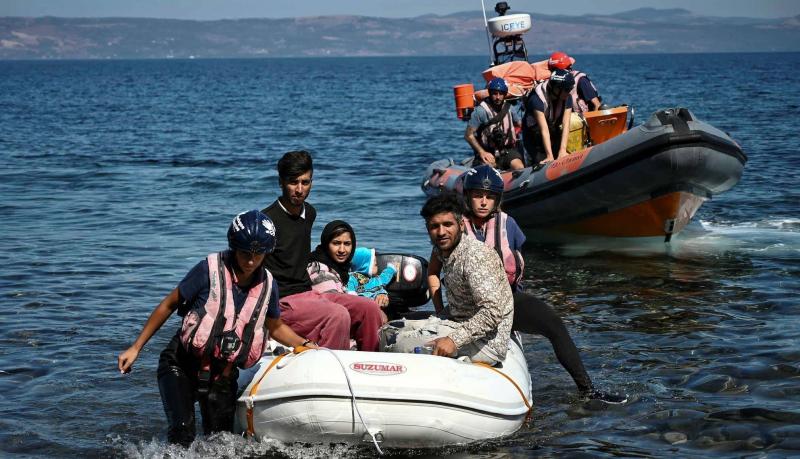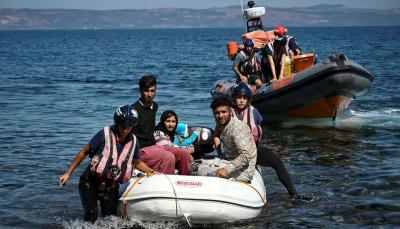The saga of irregular migration from the northern regions continues, indicating that the incident of a boat sinking at the port months ago has not deterred the desperate people of this country from leaving by any means necessary. The activity of illegal migration remains robust, with boats navigating the Mediterranean back and forth towards Europe whenever possible.
Recently, a new incident has emerged concerning a boat heading to Europe that was intercepted in Turkey, which has sparked considerable media attention. This vessel that was detained in Turkey a few days ago is not the first, nor will it be the last. Just a few days ago, a boat left from the sea off Akkar heading to Greece, carrying dozens of Lebanese, Syrian, and Palestinian individuals, with reports suggesting that several more boats are preparing to depart in the coming days.
Regarding the boat stopped by Turkish authorities coming from northern Lebanon, information has confirmed the existence of Syrian-Lebanese networks working together, which have been notably active recently. A boat arrived from within Syrian territory to the Aryda area in Akkar, transporting approximately 100 individuals of Lebanese, Syrian, and Palestinian nationalities along with their belongings and supplies at around 2 AM last Wednesday. It sailed towards Syrian Tartus and from there aimed to reach European borders. This boat nearly capsized according to reports, but the navy of one of the European countries managed to rescue it after panic ensued among its passengers who called for help.
Additionally, information revealed that there are security coverages for influential figures engaged in smuggling citizens, indicating that no boat can leave northward without being detected by the radars spread in Aryda, Qala'at, Tripoli, and other areas. It is further noted that there is a partnership between Syrian and Lebanese figures in this regard; without this collaboration, these boats would not be able to cross from Lebanon to Syria in this manner.
The individuals attempting to migrate by sea often sell their household furniture, cars, or gold to fund the journey, which has reached costs of up to $7,000 per person. Each boat typically carries between 70 to 100 passengers, and recently, smugglers have equipped their vessels with advanced technology, thus increasing the cost of the journey. Smuggling operations usually occur after midnight, with some providing protection for these boats, while others lead them and secure travel customers. The common northern launch points for these trips include: Miniyeh, Port Taba, Sakeh Al-Badawi, the port, Al-Abdeh, Aryda, Sheikh Zenad, Tripoli Harbor, Deir Al-Natour, and Anfeh.




